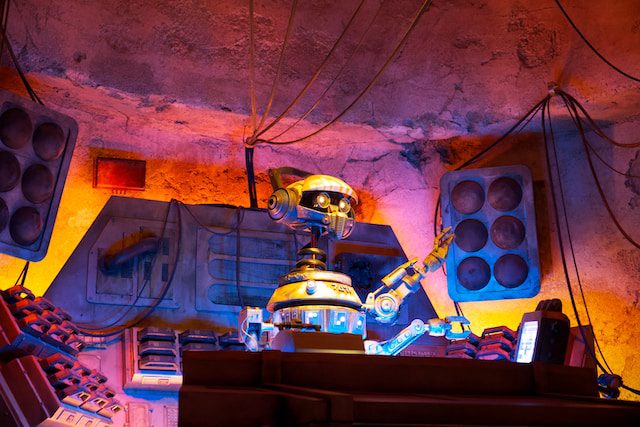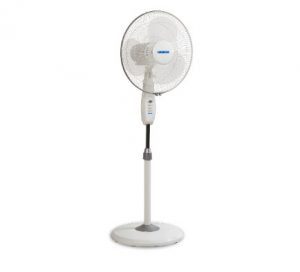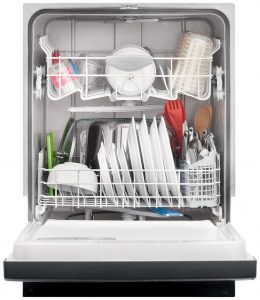In the ever-evolving home remodeling industry, staying one step ahead is the key to success. One of the most effective ways to grow your home improvement business is to integrate smart technology into your operations. From streamlining processes to improving customer experience, leveraging the latest developments can help your business stand out in a competitive market.
In this article, we explore different ways to scale your home improvement business smartly using smart technology.
Table of Contents
1. Using Augmented Reality For Virtual Design Consulting
The first step in a home improvement project is a design consultation. Traditionally, this process has included site visits, construction plans, and countless back-and-forth conversations. However, the advent of augmented reality (AR) can revolutionize this stage of business.
By implementing AR technology, customers can visualize various design concepts in real time. See how different colors, furniture, and decor will look in a room simply by using a smartphone or tablet. This not only speeds up the decision-making process but also provides a more interactive and engaging experience for customers.
2. Efficient Project Management With Smart Collaboration Tools
Managing multiple home renovation projects simultaneously can be difficult, especially when coordinating with various stakeholders such as contractors, suppliers, and customers. Intelligent project management tools greatly improve efficiency and organization.
Cloud-based collaboration platforms like Trello and Asana enable real-time communication and project tracking. These tools streamline task management and ensure everyone involved in a project is on the same page. Features like file sharing, milestone tracking, and instant messaging allow you to keep your team and clients informed and engaged throughout the project lifecycle.
3. Deploying Smart Home Automation Solutions
As a home renovation company, integrating smart home automation into your projects can provide tremendous value. Smart lighting, thermostats, security systems, and other automation features not only improve the functionality of your home but also fit in with current trends toward sustainable living.
By working with smart home technology providers, you can offer your customers cutting-edge solutions that make their homes more comfortable and efficient. Moreover, integrating these technologies can help you stand out as a forward-thinking and innovative player in the market.
4. Using 3d Printing For Custom Home Decor
Providing personalized and unique home decor items can be a lucrative niche in the renovation industry. 3D printing technology allows you to create custom furniture, furnishings, and decorative items tailored to a customer’s specific tastes and requirements.
3D printing not only offers a level of customization that traditional manufacturing methods cannot provide but also reduces manufacturing time. This is a huge advantage when it comes to meeting tight project deadlines and delivering a first-class customer experience.
5. Increase Customer Engagement With Virtual Reality Showrooms
Physical showrooms are essential for displaying your work and giving customers the opportunity to experience your designs first-hand. But virtual reality (VR) showrooms take this concept to the next level. VR technology allows clients to consider different design concepts, explore different materials, and visualize the final result before starting physical work.
Setting up a virtual reality showroom is very important for your business, especially when targeting customers who may not be able to visit your physical location. This demonstrates the company’s commitment to using technology not only to expand its reach but also to benefit its customers.

6. Optimize Your Marketing Strategy With AI
In the digital age, data-driven marketing is the key to success. Artificial intelligence (AI) plays a key role in optimizing marketing strategies. A lot of things have been said about AI, but there is a benefit to using it, too. AI algorithms help tailor marketing campaigns for maximum effectiveness by analyzing customer behavior, preferences, and market trends.
Bringing AI into your marketing efforts allows you to connect your prospects with your customers 24/7, including personalized email campaigns, targeted social media ads, and even chatbots on your website. This level of automation not only saves you time and resources but also makes your marketing efforts more relevant to your target audience.
7. Incorporate Smart Sensors To Increase Energy Efficiency
Sustainability is a growing concern for homeowners, and incorporating smart sensors into renovation projects can meet this demand. Smart sensors monitor and adjust energy consumption, optimizing your home for efficiency and sustainability.
For example, a smart thermostat can learn the occupant’s preferences and adjust the temperature accordingly, HVAC software can assist the contractor, while smart blinds can automatically adjust to the time of day or external conditions. Incorporating these technologies into your projects not only contributes to environmental protection but also appeals to customers who value sustainable living.
8. Use Drones To Evaluate Sites And Track Progress
Integrating drone technology into your home improvement business can greatly improve the efficiency of site evaluations and project monitoring. Drones provide a bird’s-eye view of your site and enable comprehensive on-site analysis without the need for human inspection. This is especially useful for large projects or properties with difficult terrain.
Drones can also be used to track project progress and provide real-time aerial footage. This not only increases transparency for your customers but also enables better decision-making for your team. Drone technology contributes to faster project timelines and more accurate planning by reducing the time and resources required for on-site assessments.
9. Invest In Virtual Payment Solutions For Seamless Transactions
Simplify the financial side of your renovation business by integrating virtual payment solutions. With the rise of contactless transactions and digital wallets, it’s important to offer safe and convenient payment methods. This not only optimizes the payment process for your customers but also minimizes the administrative burden on your company.
Virtual payment solutions, such as mobile payment apps and online billing platforms, make it easy for customers to pay for services and products. Additionally, integrating these systems with project management software allows financial transactions to be seamlessly recorded and tracked for a more organized and efficient financial workflow.

10. Using Artificial Intelligence For Personalized Design Recommendations
Improve your design consultation process by integrating artificial intelligence into your decision-making framework. AI algorithms analyze customer preferences, lifestyle, and existing home aesthetics to provide personalized design recommendations. This not only saves time during the initial design stage but also ensures that the proposal is tailored to the customer’s preferences.
AI-powered design tools can suggest color palettes, furniture placement, and décor options based on historical data and current trends. Integrating this technology increases the level of customization of your services, making each project more individual and satisfying for your customers.
11. Implementing Blockchain For Transparent Supply Chain Management
Integrate blockchain technology to ensure supply chain transparency and traceability. Blockchain provides an immutable distributed ledger that records every transaction and physical movement, promoting accountability and minimizing the risk of fraud. This is especially important in the home improvement industry, where sourcing high-quality materials is paramount.
Blockchain allows you to track the origin, quality, and delivery of materials, ensuring your customers receive the best product for their projects. Using blockchain for supply chain management can not only increase customer trust but also contribute to a more ethical and sustainable industry.
There You Have It
In the competitive environment of the renovation industry, scaling up requires innovation and a future-oriented approach. By using intelligent technology, you can not only optimize your operations but also provide your customers with an improved and personalized experience. From augmented reality and virtual reality to AI-driven marketing and sustainable home automation, integrating these technologies can put your business on the path to modern growth and success. By leveraging and expanding with smart technology, you can not only stay relevant but also position your renovation business as a leader in an ever-evolving industry.
Featured Image by Roger Starnes Sr Unsplash.com




